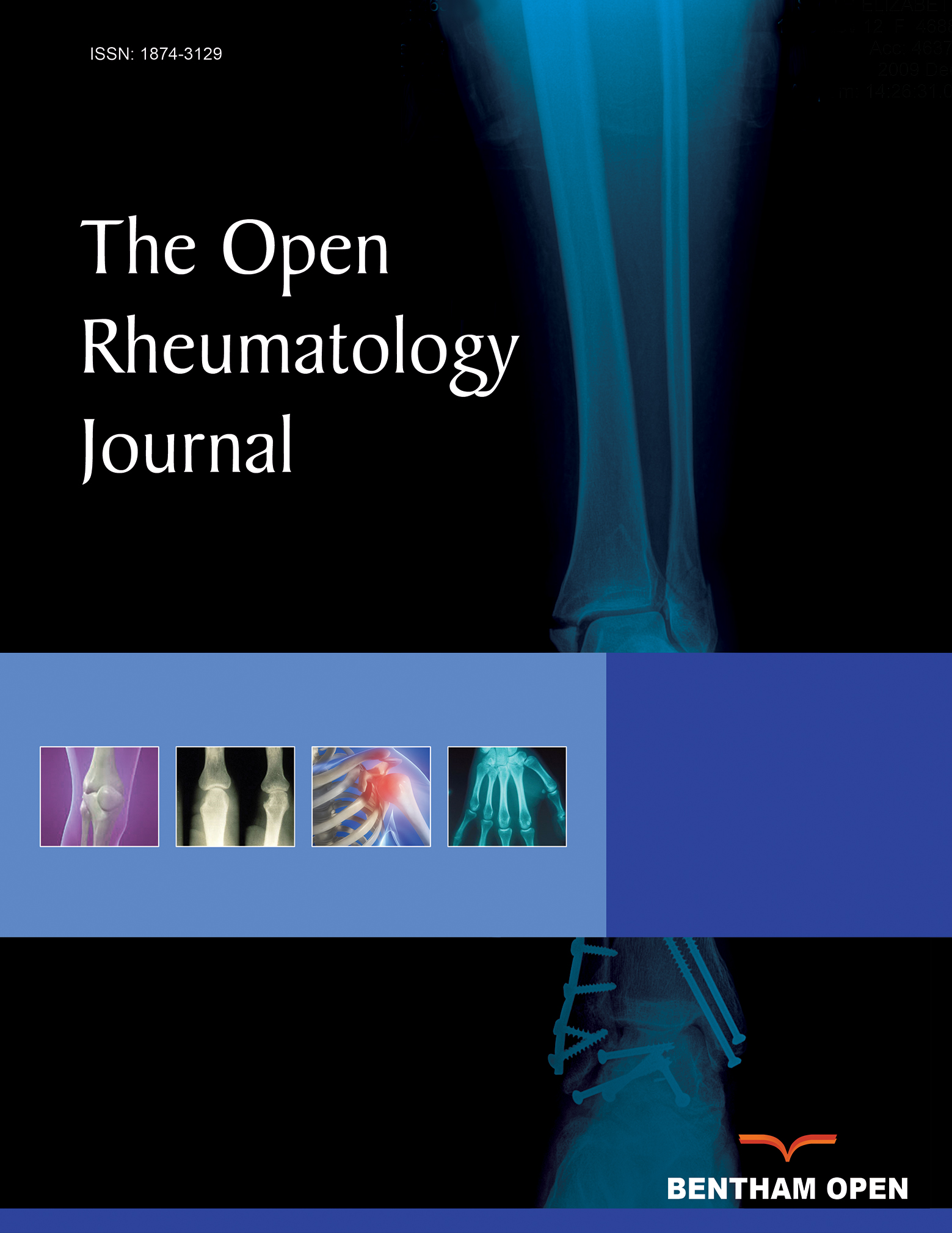All published articles of this journal are available on ScienceDirect.
Determinants of Disability in Rheumatoid Arthritis: A Community-Based Cohort Study
Abstract
Longitudinal care of a community-based cohort of patients with rheumatoid arthritis (RA) was evaluated retrospectively. Candidate determinants of disability included visual analog scales (VAS) for patient global assessment and pain, comorbidities, and medications. The outcome was the ‘patient-acceptable symptom state’ for disability as defined by the Health Assessment Questionnaire (HAQ) disability index, using a cutoff of <1.04. Two-sample t tests and multivariable logistic regression were used to determine odds ratios (OR) for associations between predictor variables and disability. Out of a total of 99 patients, 28 (28%) patients had HAQ ≥1.04 at their last visit. The greatest odds of not attaining the patient-acceptable symptom state in a multivariable model was associated with corticosteroids (OR: 5.1; p=0.02), antidepressants (OR: 5.3; p=0.02), and female sex (OR: 6.5; p=0.05). In the era of biologic therapy, female sex, corticosteroids, and antidepressants remain profound determinants of disability highlighting the need to understand the underlying mechanisms.


